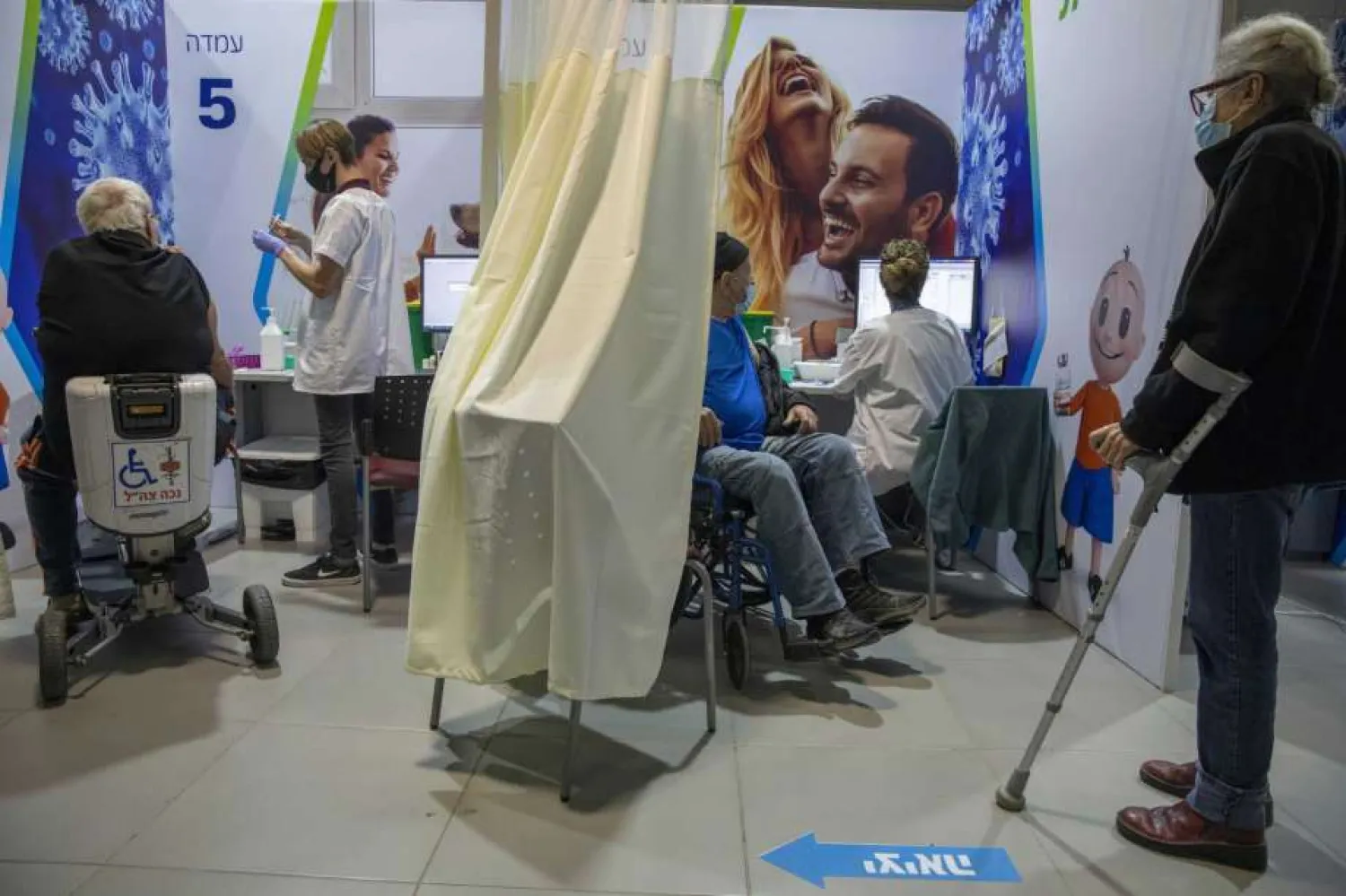After sprinting ahead in the race to inoculate its population against the coronavirus, Israel has struck a deal with Pfizer, promising to share vast troves of medical data with the international drug giant in exchange for the continued flow of its hard-to-get vaccine.
Proponents say the deal could allow Israel to become the first country to vaccinate most of its population, while providing valuable research that could help the rest of the world. But critics say the deal raises major ethical concerns, including possible privacy violations and a deepening of the global divide that enables wealthy countries to stockpile vaccines as poorer populations, including Palestinians in the Israeli-occupied West Bank and Gaza, have to wait longer to be inoculated.
Prime Minister Benjamin Netanyahu - who is stumping ahead of the country's March elections as Israel's vaccinator-in-chief - said earlier this month that he reached the deal with Pfizer´s chief executive to speed up vaccine deliveries to Israel.
"Israel will be a global model state," he said. "Israel will share with Pfizer and with the entire world the statistical data that will help develop strategies for defeating the coronavirus."
Israeli Health Minister Yuli Edelstein told The Associated Press the government will turn over data to "see how it influences, first of all, the level of the disease in Israel, the possibility to open the economy, different aspects of social life, and whether there are any effects of the vaccination."
Pfizer´s vaccine, developed with German partner BioNTech, has received emergency approval from the US Food and Drug Administration and the European Union's regulatory agency and is believed to provide up to 95% protection against COVID-19. But much remains unknown, including its long-term protection and whether it can prevent transmission of the virus.
Israel, home to some 9.3 million people, is considered an ideal place for studying these questions. Its mandatory universal health care is provided by four publicly funded HMOs with meticulously digitized medical records. This centralized system has helped Israel administer more than 2 million doses of the vaccine in under a month. Israel has also purchased doses of the Moderna and AstraZeneca vaccines.
The inoculation blitz is a matter of national pride. It also is at the center of Netanyahu´s reelection campaign as he seeks to deflect attention from his ongoing corruption trial, Israel's deep economic crisis, and the latest virus surge.
The Health Ministry has recorded over 543,00 cases since the beginning of the pandemic and nearly 4,000 deaths. Israeli officials say they aim to have most of the country vaccinated by the end of March, just around election day.
But the exact quid pro quo between Israel and Pfizer is unclear, even after a redacted version of the agreement was released by the Israeli Health Ministry on Sunday.
Neither Israel nor Pfizer would say how much Israel has paid for the vaccines, though Edelstein called it a "classical win-win" for both sides. Israeli media have reported that Israel paid at least 50% more than other countries. The data is reportedly being shared with the World Health Organization, but the global body did not respond to repeated requests for comment.









